Community Conversation
Recent events in our country have required us to look introspectively at what we are doing to be the people and the community we want to be. We asked members of the Illinois Wesleyan community questions that many Americans are grappling with at this critical point in our history.
. . .
This issue of IWU Magazine reflects on the deep, race-based inequities in our society and our University. We have not lived up to our espoused ideals, and this time of reckoning and action is long overdue. As a university, we recognize both that action is needed now and that only unwavering commitment, sustained over time, to fostering a diverse and inclusive community will bring about the change we want to see. We must act to bring a more diverse population to our campus, and we must work together to ensure that we offer a more welcoming and supportive environment.
In 2019, only 12% of our faculty were people of color. Last year, with focused attention from the president’s office, we hired five new faculty members, four of whom are faculty of color. That change is small, but it is progress that reflects intentional commitment. This year, we are again focusing on our search practices with an explicit goal of increasing faculty diversity, and we have joined the Consortium for Faculty Diversity at Liberal Arts Colleges, an organization that provides fellowships to young scholars of color. We know that increasing the diversity of our faculty and staff is critical to providing an outstanding education for all students.
We must also demonstrate a commitment to recruiting — and retaining — a diverse student body. As a predominantly white institution, we are often the least diverse environment our students have experienced for their education and as their home community. Creating an inclusive community requires not only that we have a more diverse student body, but also that we provide a more supportive campus climate.
Alumni and student groups, The Alliance (a group of faculty and staff members of color) and community organizations like the NAACP have been generous in joining me for listening sessions, as I seek their guidance in prioritizing steps that will enable us to make the most significant, substantive and sustainable progress. We will continue in this work together.
In addition to the feature stories in the issue, we wanted to include a broader range of voices, by inviting members of the IWU community to reflect upon their own experience and to offer their thoughts and aspirations for the future. I am pleased to introduce their contributions.
Recent events in our country have required us to look introspectively at what we are doing to be the people and the community we want to be. We asked members of the Illinois Wesleyan community questions that many Americans are grappling with at this critical point in our history.
S. Georgia Nugent
Illinois Wesleyan University President
How have the most recent events in our nation’s long history of racial injustice and systemic racism impacted you?
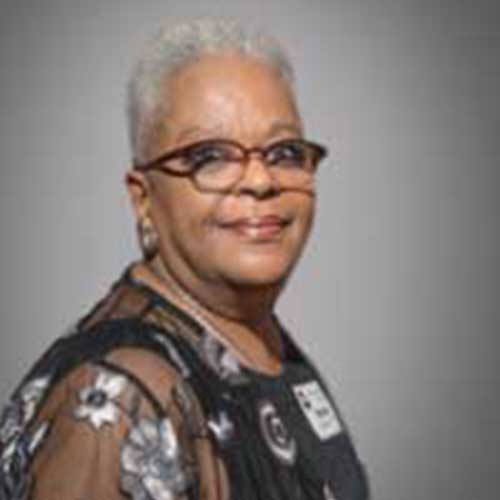 “The recent events and ensuing discussions have helped to formalize a vocabulary that
I can utilize to define the negative experiences I have suffered throughout my life.
For me, the murder of George Floyd so painfully exposed the callous disregard for
Black life that I feel has been ‘baked’ into policing in America since the end of
slavery.”
“The recent events and ensuing discussions have helped to formalize a vocabulary that
I can utilize to define the negative experiences I have suffered throughout my life.
For me, the murder of George Floyd so painfully exposed the callous disregard for
Black life that I feel has been ‘baked’ into policing in America since the end of
slavery.”
- Phyllis Barker ’73
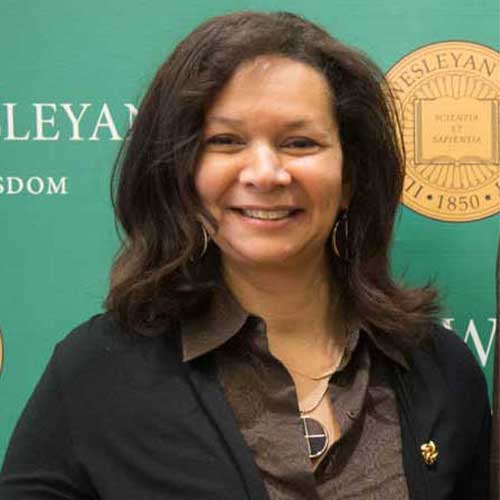 “These events have left me exhausted and heartbroken. Unfortunately, the recent incidents
of racial injustice and violence aren’t new, but they are finally coming to light
for the majority of Americans to see. We can no longer turn a blind eye. Our children
deserve a better world. We all do.”
“These events have left me exhausted and heartbroken. Unfortunately, the recent incidents
of racial injustice and violence aren’t new, but they are finally coming to light
for the majority of Americans to see. We can no longer turn a blind eye. Our children
deserve a better world. We all do.”
- Sharla Brown-Ajayi, Administrative Specialist, Office of the Provost and Dean of the Faculty
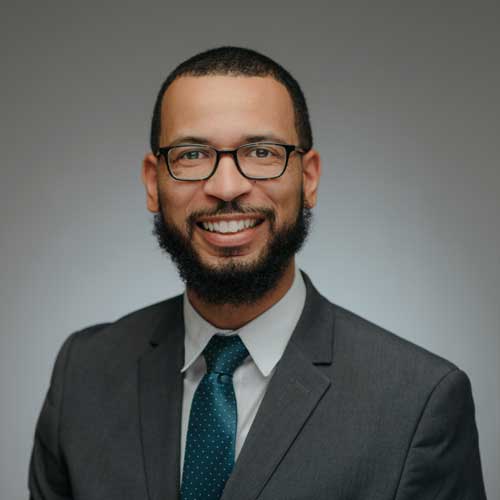 “The continued loss of life and inconsistent concern and response has been exhausting
in many ways — physically, emotionally, even spiritually; however, that exhaustion
is not without hope! Hope in the coming together of diverse people, calling out the
trauma caused, and pledging with words and resources to make change.”
“The continued loss of life and inconsistent concern and response has been exhausting
in many ways — physically, emotionally, even spiritually; however, that exhaustion
is not without hope! Hope in the coming together of diverse people, calling out the
trauma caused, and pledging with words and resources to make change.”
- Derrick L. Tillman-Kelly ’09
How do we inspire the change we want to see in the world?
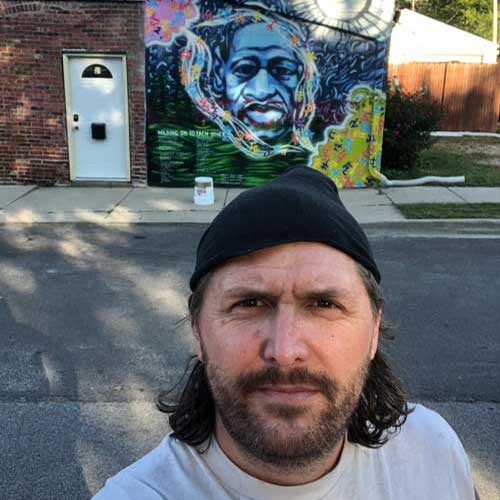
“We model it in action and create opportunities for dialogue, then we moderate ourselves in conversation, especially among those opposed, indifferent or ignorant to these truths.”
- Bruce Clark ’97
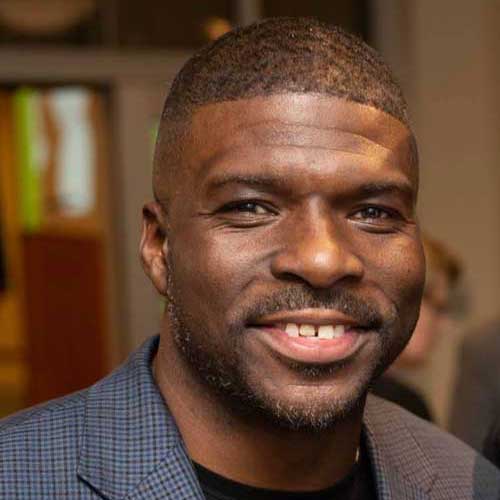
“It’s the golden rule: treat others like how you would like to be treated. We inspire change by calling out injustice whenever it arises and working to dismantle systems that sustain inequity and injustice. We should want to leave the world better than we found it.”
- Deon Hornsby ’97
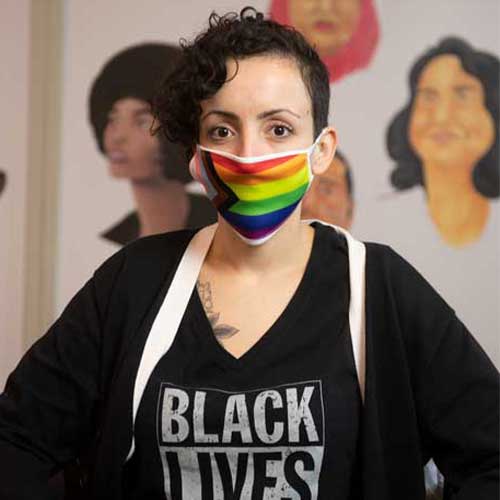 “Stay honest and keep people honest. Know that you can only ever be the expert of
your own lived experience, and honor when people of marginalized communities tell
you they are in pain or feeling like they’re not a priority. Then make it a priority
to support those folks who are too often silenced or pushed into the corner of ‘politics’
out of convenience for the status quo. It takes courage admitting that we are working
in an unfair system and that most of us benefit from anti-Blackness and transphobia
on a daily basis. You don’t have to feel bad about being born with privilege, but
you do have to use your privilege to help others. It’s just the right thing to do.”
“Stay honest and keep people honest. Know that you can only ever be the expert of
your own lived experience, and honor when people of marginalized communities tell
you they are in pain or feeling like they’re not a priority. Then make it a priority
to support those folks who are too often silenced or pushed into the corner of ‘politics’
out of convenience for the status quo. It takes courage admitting that we are working
in an unfair system and that most of us benefit from anti-Blackness and transphobia
on a daily basis. You don’t have to feel bad about being born with privilege, but
you do have to use your privilege to help others. It’s just the right thing to do.”
- Hannah Mesouani, Director of Office of Diversity and Inclusion
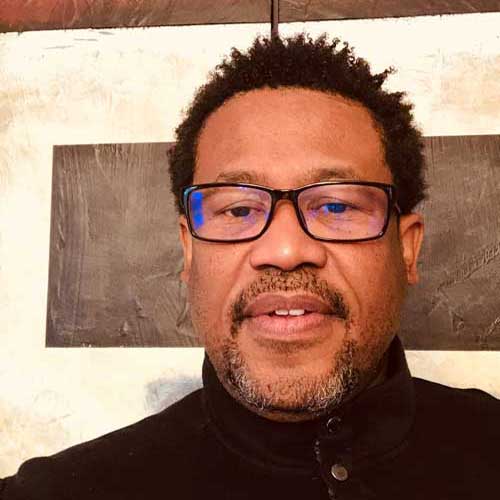
“People have to drop their assumptions and be comfortable with being uncomfortable. So many people do not want to talk about race or social injustice because it makes them uncomfortable. It makes me uncomfortable to experience racism and microaggressions in my life, but I really don’t have a choice. I would encourage people to step outside of their comfort zones, engage with people who don’t look like you, read books/articles and listen to talks on bias and privilege. You must turn your positive thoughts into actions that promote an inclusive society.”
- André Quizon-Colquitt ’88
What resources would you suggest for topics of diversity, inclusion and social justice?
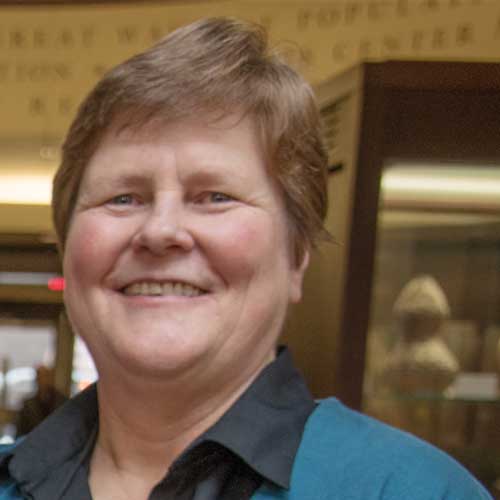
“The Anti-Racism Daily newsletter by Nicole Cardoza (antiracismdaily.com) and A People’s History of the United States by Howard Zinn.”
- Meg Miner, University Archivist & Special Collections Librarian, Associate Professor
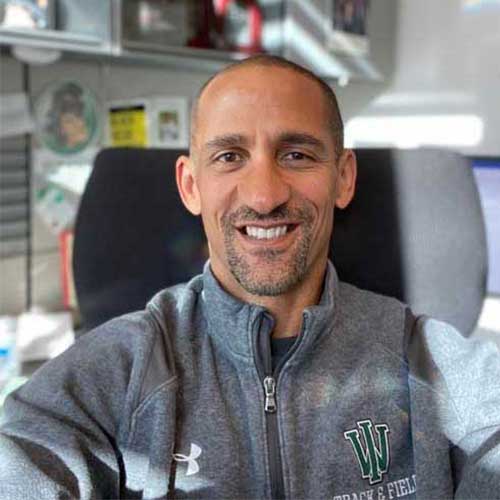 “Read inspiring books such as The Other Side of Freedom and Between the World and Me. Seek experiential learning for self-discovery and understanding that racism goes
far beyond the surface of Black and white. Actively seek opportunities to take part
in challenging discussions and be willing to be vulnerable.”
“Read inspiring books such as The Other Side of Freedom and Between the World and Me. Seek experiential learning for self-discovery and understanding that racism goes
far beyond the surface of Black and white. Actively seek opportunities to take part
in challenging discussions and be willing to be vulnerable.”
- Chris Schumacher, Head Track and Field Coach, Professor
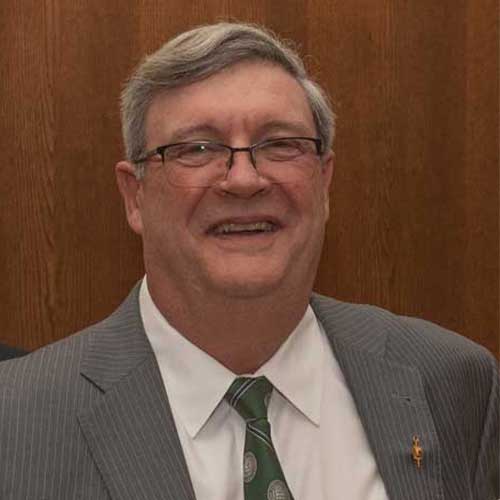
“The writings of Langston Hughes, Gwendolyn Brooks, Maya Angelou, Frederick Douglass, James Baldwin, Thurgood Marshall, Martin Luther King, Jr., Eldridge Cleaver, and countless others; Caste by Isabel Wilkerson; the excellent Titan Talks webinars on the subject available on the IWU website and the resources cited therein.”
- George A. Vinyard ’71, IWU trustee